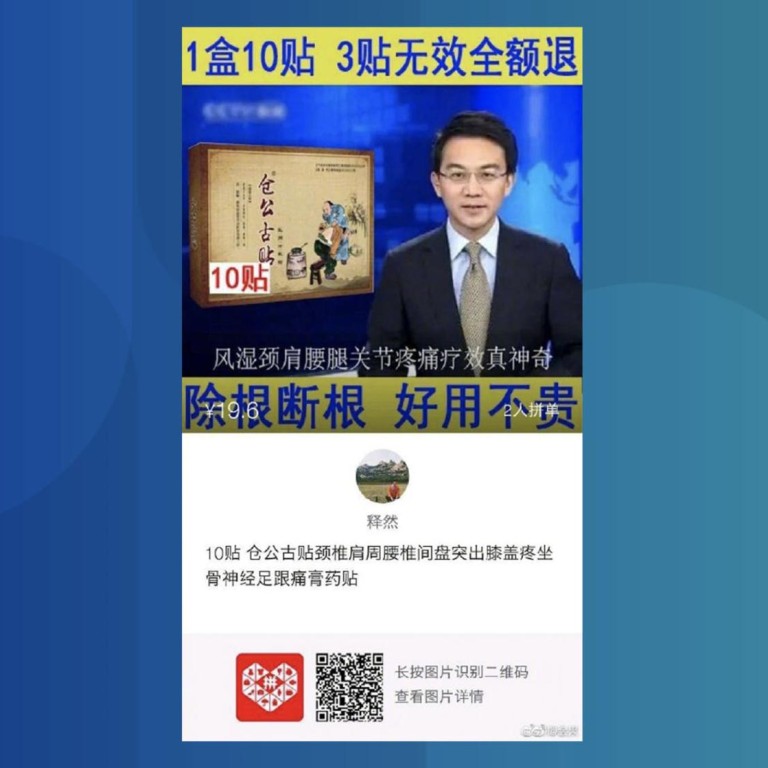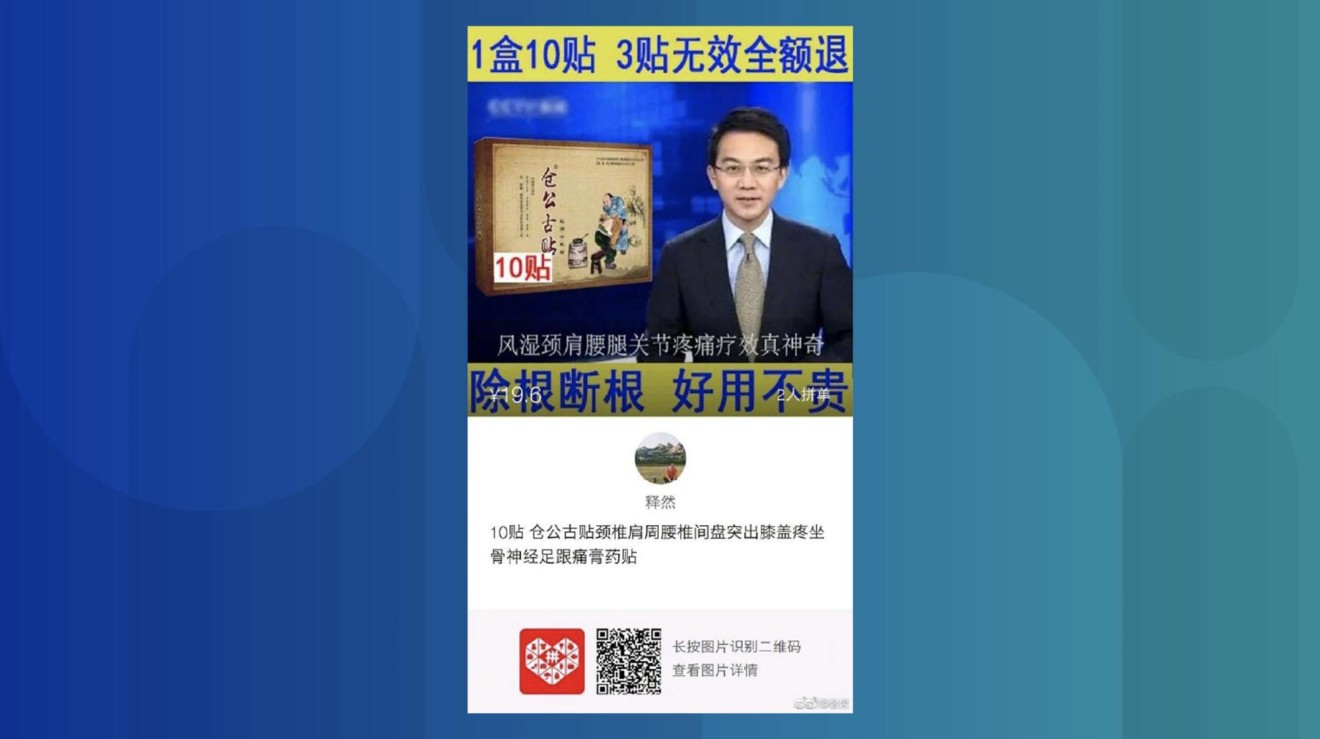
Former CCTV anchor calls out Pinduoduo after vendor uses his picture
A seller used the the image to hawk Chinese medicine as ecommerce platforms are facing tighter oversight from authorities
Imagine browsing goods on Amazon and seeing yourself as the spokesperson for a product you’ve never heard of. It seems bizarre, but it actually happened to one of China’s most well-known news anchors.
Lang Yongchun, a former news anchor at China’s state-owned broadcaster CCTV, called out Pinduoduo on Weibo after discovering a shop on the ecommerce site used his likeness to sell Chinese medicine patches. The picture of the anchor sitting at a news desk next to the product seems to imply he was endorsing it.
“There is more than one shop with similar infringements!” Lang said in his Weibo post. “Do I contact Pinduoduo, or do I contact the vendor?”
He later deleted the post, but screenshots circulating on Weibo show he commented below it explaining that Pinduoduo apologized to him and removed the product involved. Pinduoduo also said that the platform will improve their image recognition capabilities to combat similar behavior, according to Lang. He confirmed to Abacus that the screenshots are accurate.

Pinduoduo, now China’s third biggest ecommerce site, is known for cheap products and a unique style of shopping. The platform, whose name literally means “shop more together” in Chinese, lets you join, or invite your friends to join, a group purchase, providing everyone a discount on the product. It’s attracted hundreds of millions of users who are mostly from lower-tier cities, but it’s also notorious for hosting counterfeit products.
(Abacus is a unit of the South China Morning Post, which is owned by Alibaba, which operates Taobao.)
Some of the problems plaguing Pinduoduo and other shopping platforms may have to be addressed soon as authorities strengthen ecommerce regulations. A new law that went into effect this year makes both platforms and individual vendors liable for counterfeits, and it forbids vendors from deleting customer reviews.
For more insights into China tech, sign up for our tech newsletters, subscribe to our Inside China Tech podcast, and download the comprehensive 2019 China Internet Report. Also roam China Tech City, an award-winning interactive digital map at our sister site Abacus.

